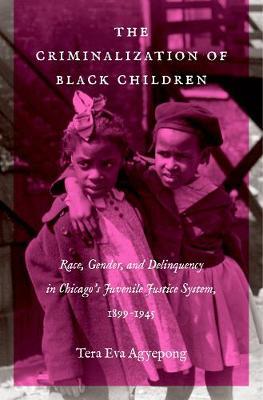Criminalization of Black Children

Criminalization of Black Children
This important study expands the narrative of racialized criminalization in America, revealing that these patterns became embedded in a justice system originally intended to protect children. In doing so, Agyepong also complicates our understanding of the nature of migration and what it meant to be black and living in Chicago in the early twentieth century.
PRP: 260.40 Lei
Acesta este Prețul Recomandat de Producător. Prețul de vânzare al produsului este afișat mai jos.
234.36Lei
234.36Lei
260.40 LeiIndisponibil
Descrierea produsului
This important study expands the narrative of racialized criminalization in America, revealing that these patterns became embedded in a justice system originally intended to protect children. In doing so, Agyepong also complicates our understanding of the nature of migration and what it meant to be black and living in Chicago in the early twentieth century.
Detaliile produsului









